EU referendum in Wales: The essential guide
- Published
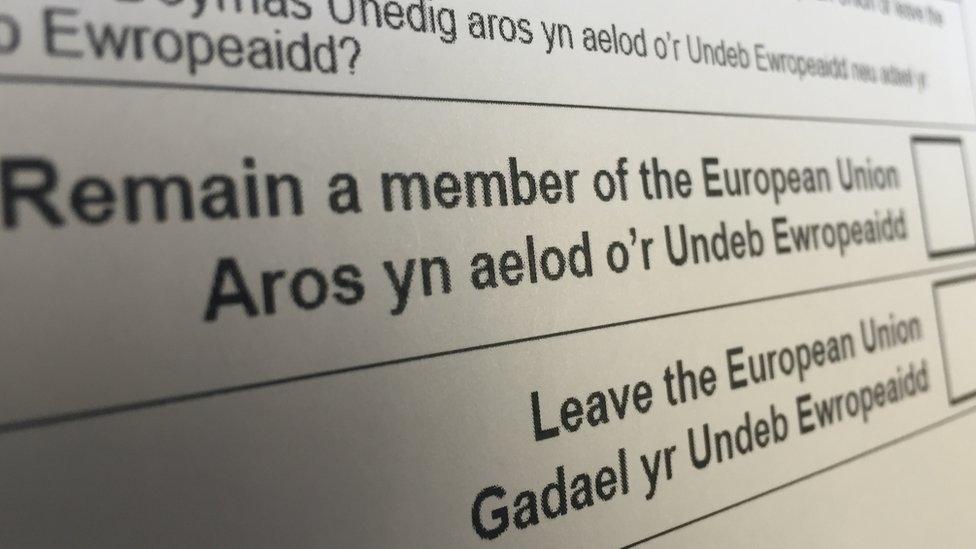
Welsh voters will join the rest of the UK on 23 June in taking part in the European Union referendum.
It is the first time since the 1970s that the public has had a chance to say at the ballot box whether the country should remain part of the bloc, which now has 28 members.
It is a UK-wide poll - but Welsh issues will play a big role in the local campaigns fighting for your support.

Who is heading up the Welsh campaigns? Who is backing what?

David Jones (left) heads the Leave campaign in Wales, with Geraint Talfan Davies (right) for Remain
Both the official referendum campaigns have Welsh off-shoots.
Britain Stronger In Europe is supported by pro-Remain Tories, Labour members and Liberal Democrats.
Plaid Cymru is also working with the campaign and the party's former leader Lord Wigley is on its board.
The Welsh offshoot is known as Wales Stronger In Europe. Its chairman is former BBC Wales controller Geraint Talfan Davies.
Vote Leave has the backing of anti-EU Conservatives, those in Labour who want to see a Leave vote and UKIP.
It also has a Welsh campaign - Vote Leave Cymru - which is being led by former Welsh Secretary David Jones.
Welsh Labour, Plaid Cymru and the Lib Dems are also mounting their own Remain campaigns as individual parties.
UKIP's main focus has always been to get Britain out of the EU, and is campaigning for Leave. Party leader Nigel Farage has backed the Grassroots Out effort, which failed to get designation as the official Leave campaign but is continuing to operate.
Leaders of Welsh Labour and Plaid Cymru, Carwyn Jones and Leanne Wood, are prominent Welsh Remain campaigners, as is former Welsh Liberal Democrat leader and sole Lib Dem AM Kirsty Williams.
UKIP group leader Neil Hamilton and UKIP Wales leader Nathan Gill will be vocal campaigners on the Leave side, and Welsh Conservative leader Andrew RT Davies has said he will be backing Leave as well.

Steel, funding and agriculture - the Welsh EU debate
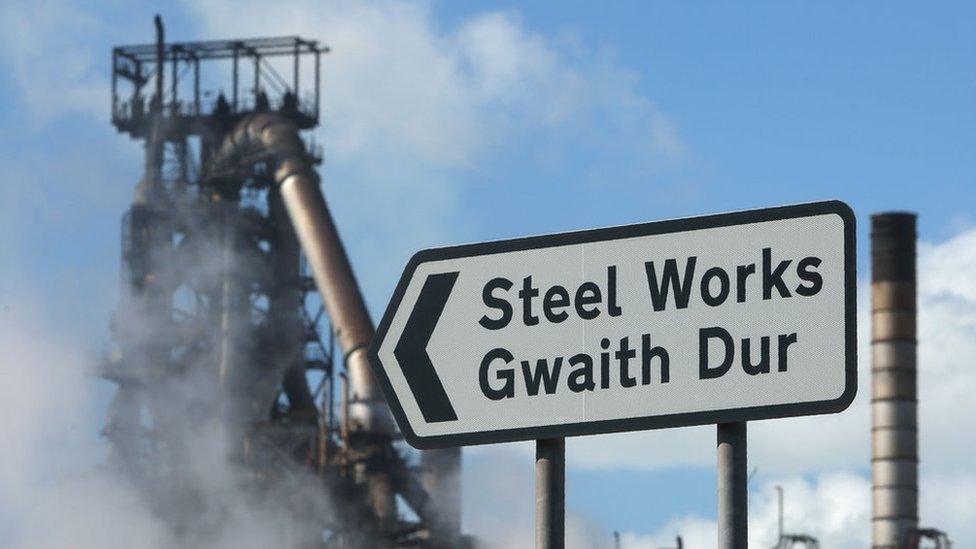
The big messages from the different campaigns are the same in London as they are in Cardiff. But three big flashpoints are the focus of many of the specific Welsh arguments over the EU.
The future of the steel industry and the EU's role in it has proved highly controversial, driven by massive job losses and a decision by Tata Steel - owner of the Port Talbot steelworks - to sell its business.
Leave campaigners say governments in the UK have been limited by what they can do because of EU rules restricting state aid, and have been unable to set tariffs to protect Welsh and UK business from cheap Chinese steel.
Those on the Remain side argue the EU already has a large number of anti-dumping measures in place, and the UK government is able to act on energy prices and business rates to cut costs for the steel industry. There is more on the steel debate here.
Another big point of contention has been the structural funds Wales receives - cash given to poorer parts of the union to help boost economic growth.
Under the current EU scheme, Wales is pegged to receive £1.8bn from 2014 to 2020.
Most of it is spent in the west Wales and valleys region, which covers the whole of Wales excluding Powys, Monmouthshire, Newport, the Vale of Glamorgan, Flintshire, Wrexham and Cardiff.
Back in February, Prime Minister David Cameron said the UK government could not guarantee making up any shortfall in the EU aid Wales receives if Britain was to leave the bloc.
But UK government employment minister Priti Patel has countered that, saying the funds may end anyway after 2020 even if there was no Brexit.
Meanwhile Wales' share of the pot of money spent by the EU on farming has also been subject to debate.
Under the current Common Agricultural Policy (CAP) scheme for 2014-2020, Wales receives around £200m a year.
First Minister Carwyn Jones has warned farming in Wales would "come effectively to an end" with the loss of EU subsidies.
But Leave campaigners argue agriculture would be better off out of the EU, saying CAP is extremely bureaucratic, and levels of government support to British farming would be unaffected and could actually rise in the event of Brexit.

How do I vote? Who can vote?
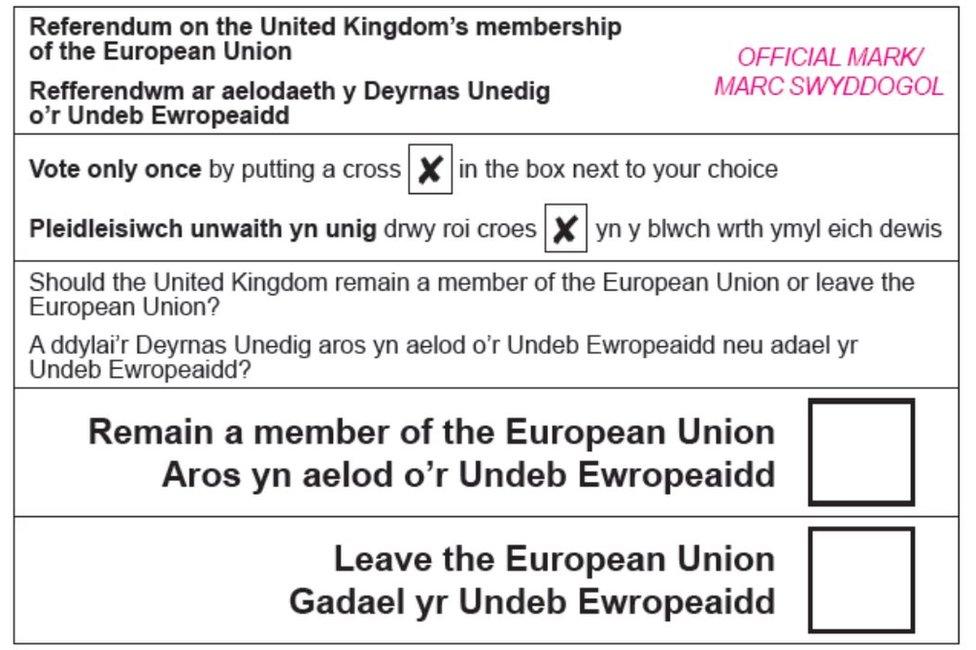
Bilingual version of the ballot paper
British or Irish citizens aged 18 or over and who are living in the UK are eligible to take part in the referendum.
Commonwealth citizens who are permitted to live in the UK can also take part, as can British citizens who live overseas but have been registered to vote in the UK for the last 15 years.
Unless you arrange for a postal or proxy vote, you will need to go to a polling station. This will be listed on the polling card you get sent before referendum day.
Unlike the Welsh Assembly election there are no multiple ballot papers to worry about - there is just one question, with two answers to choose from.
The question is: "Should the United Kingdom remain a member of the European Union or leave the European Union?"
It is a referendum - you place one cross in the box next to whichever choice you wish to back.
Stations will be open from 07:00 to 22:00 BST on 23 June.

How will the result be declared? Will there be a Welsh result?
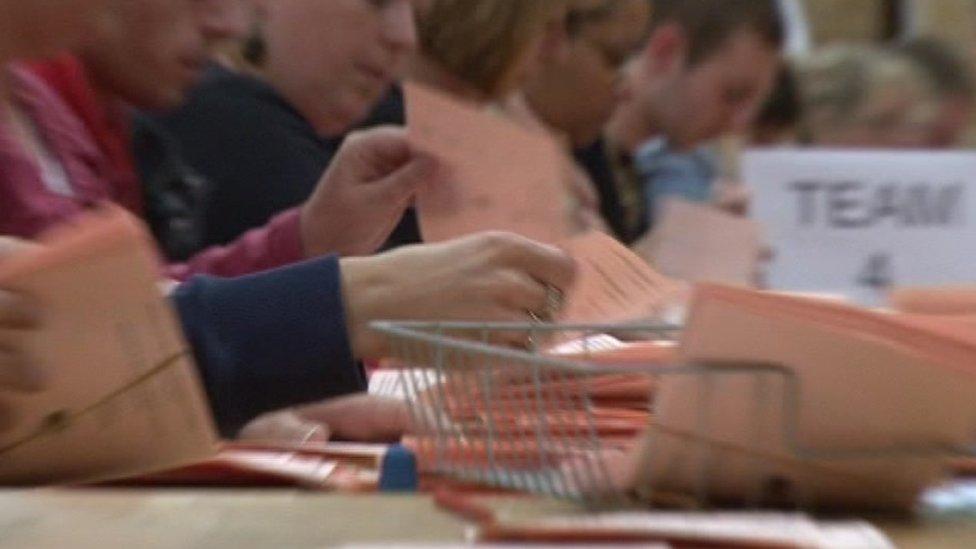
The counts will begin immediately at the close of poll.
Local counts will take place in every one of the 22 council areas in the country, and results will be fed back to Connah's Quay in Flintshire, which will act as the regional centre co-ordinating the result in Wales.
There will be a local result produced at every local count, and a Wales national result as well.
But it will be the figure for the United Kingdom that will determine the result of the referendum.
You will be able to follow the results on the BBC website, and on TV, radio and social media.

What is the deadline to register to vote in the referendum?

If you took part in the Welsh Assembly election you should be registered to vote already. If not, you have until 7 June to sign up.
If you are not already registered to vote with your council, you can do it in English here, external, or in Welsh here, external. You may need your national insurance number.
There are also forms to register to vote by post, external.
The deadline for applying for a postal vote is 17:00 BST on 15 June, while the proxy vote deadline is 17:00 BST on 15 June.
There is more information on postal and proxy voting at the About My Vote, external site.

Where can I find more information?
BBC news' EU referendum page can be found here.
- Published30 December 2020

- Published29 April 2016

- Published19 May 2016
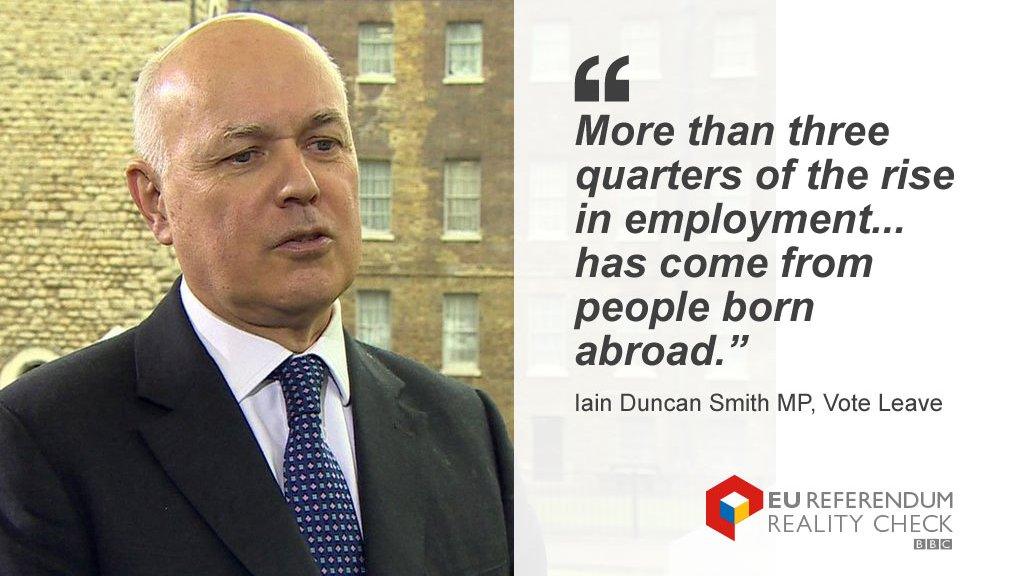
- Published13 May 2016
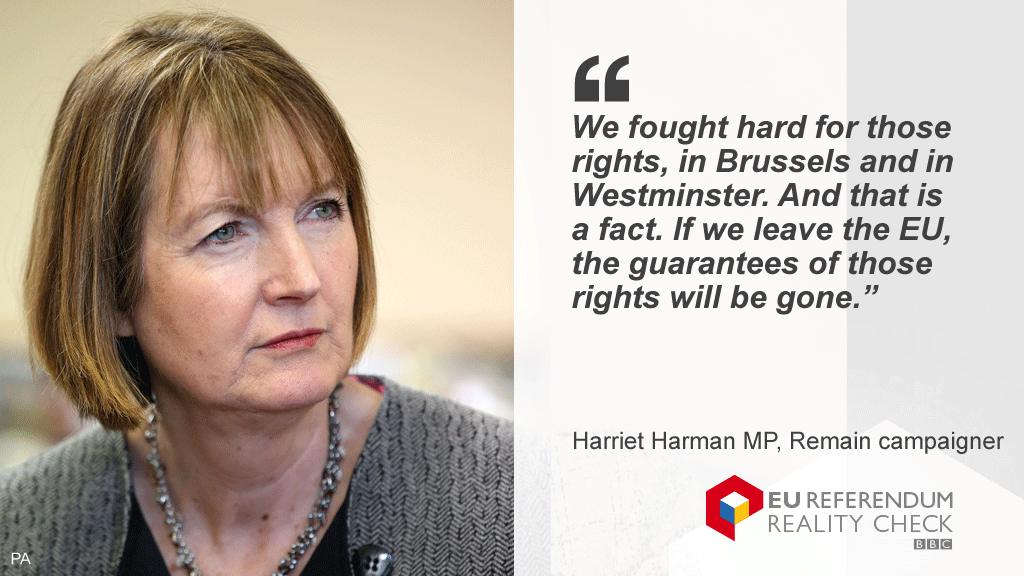
- Published12 May 2016
![Philip Davies saying: ...they [the EU] haven't had their accounts signed off for 20 years](https://ichef.bbci.co.uk/ace/standard/1024/cpsprodpb/B3F3/production/_89676064_davies_quote.gif)